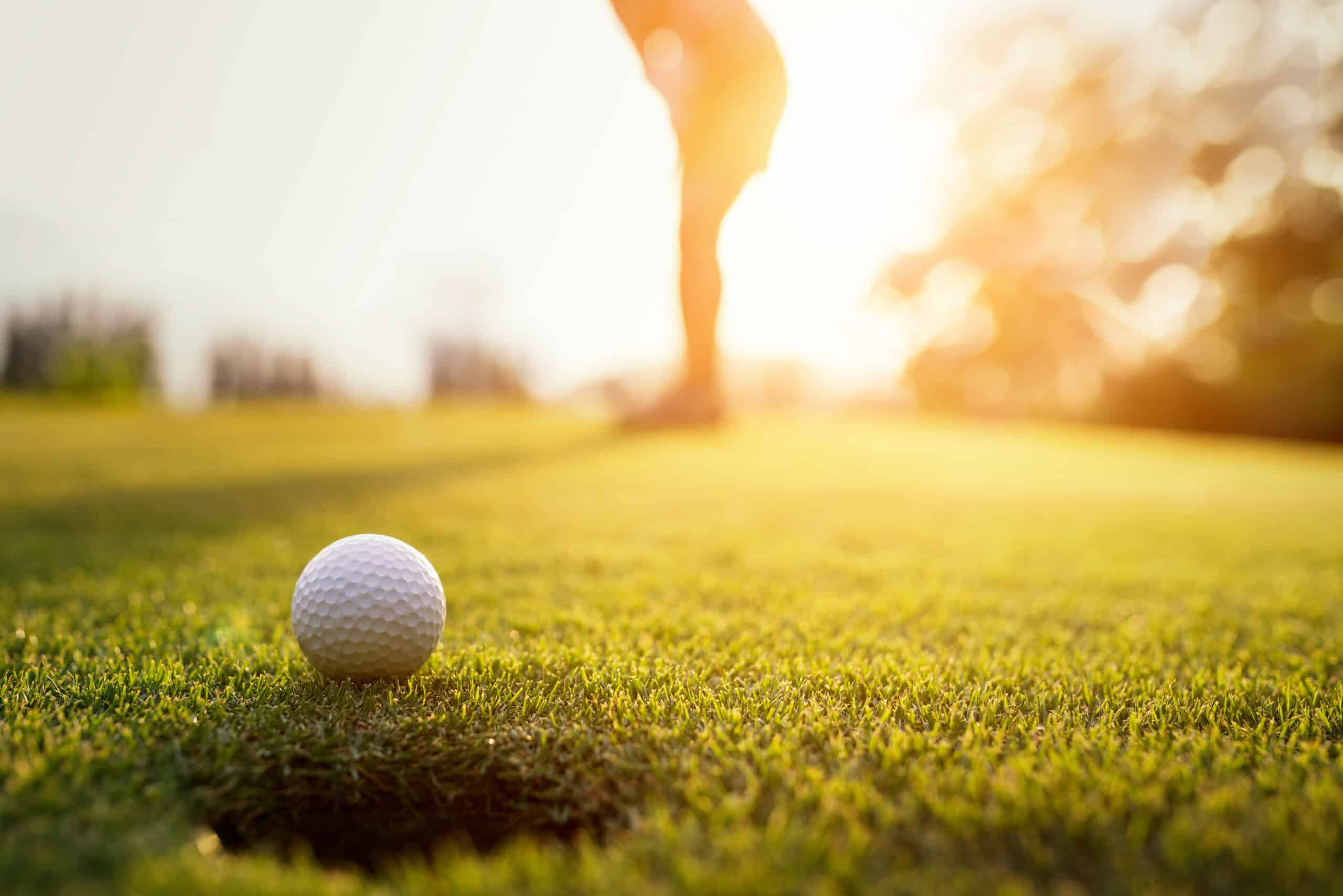Here’s why we favor golf as a way to reduce stress and improve well-being. In a physical sense, it’s low-impact and has lower energy expenditure than many others, but you still get all the physical benefits. But it has some other advantages over other sports for mental health. Here are the reasons it’s well worth a try.
Encourages Mindfulness
Not all sports provide an excellent opportunity to be mindful. But golf does. It’s calm, quiet, in a beautiful environment, and gives you a chance to really go within while you’re playing.
The key to mindfulness is to observe the present moment without judgment. When you’re focusing on the game, your next shot, or how to avoid the water hazard in front of you, your mind is engaged in something positive and constructive.
When you hit a bad shot, you can choose to be annoyed with yourself, or you can observe it objectively and accept it. It’s happened—all you can do is move forward from where it landed. It’s a wonderful way to halt negative thoughts and emotions.
Recent research shows that practicing mindfulness regularly improves mental health in people with high-stress jobs. If you start to see your golf time as “me time”—a chance to relax, reflect, and reframe your mind—you may just notice your mental health improving.
Keep in mind that it’ll be harder to achieve mindfulness if you’re on the golf course with rowdy partners. There’s nothing wrong with golfing by yourself or even hitting the driving range if you don’t want to play a full round alone.
Can Improve Cognitive Function
Scientific studies indicate that higher cognitive capabilities go hand in hand with better mental health. In order to improve or maintain cognitive function, you need to actively train your neurons on a regular basis.
All sports involve strategic thinking to some degree. But golf is an extremely strategic sport—no two shots are the same, which means you’ll constantly be analyzing the course, your club selection, and how to play your next shot.
Just like a muscle, the more you use your analytical skills, the better they become. This also pairs up perfectly with mindfulness—it’s hard to get lost in negative thoughts or feel stressed when you’re focusing on which club to choose based on the distance to the green,
Enhanced Physical Fitness
There’s a ton of evidence out there showing that improving physical fitness can have marked effects on both the body and the mind in a number of different contexts. But you don’t need to understand the science to know that it can be positive.
Golf is a low-impact sport that involves a lot of walking, which makes it accessible for even those with physical pain. This combination of cardiovascular exercise, light muscular workouts, and low-impact weight-bearing exercise helps to improve physical fitness in a well-rounded way.
For those who experience constant physical pain, exercise has been shown to improve pain, increase physical function, and boost the quality of life. All of these factors play a role in improving mental health—the lowering of chronic pain, in particular, makes a huge difference.
It also helps people maintain their range of motion, mobility, and independence as they age, which can help maintain good mental health as they age.
Doing Something That You Enjoy
Research is clear that partaking in something you enjoy has positive effects on your mental health. It’s also true that nobody is going to spend hours walking the golf course and hitting a tiny golf ball towards an unseen hole if they don’t enjoy the activity!
Time spent doing something you enjoy has a big effect on mental health. It not only provides a sense of pleasure, but it can also help to lower stress and release “happy hormones” and endorphins.
It’s also a much easier opportunity to practice mindfulness, as mentioned above if you enjoy what you’re doing. Getting lost in an activity, being “in the zone”, is a way of being mindful.
Better Quality of Sleep
Multiple studies have concluded that exercise improves sleep duration and sleep quality. One of the great things about golf is that it’s not strenuous exercise, but it still offers the same benefits. In fact, other research shows that moderate exercise is better for sleep quality than vigorous exercise.
Getting more sleep has a positive effect on your mental state. One study indicates that those who sleep less than 6 hours a night are more than twice as likely to experience frequent mental distress.
But even more important is the quality of your sleep, which is shown to be improved with physical exercise. Better quality sleep equals more deep sleep, which is when the body regenerates damaged tissue, helps muscles to grow, and strengthens your immune system.
Ultimately, all of the above improve overall physical health, which has a notable positive impact on mental health.
Conclusion
One of the best things about golfing for mental health is that it gets you out in nature, getting vitamin D and fresh air. But if you need more reasons to pick up golf clubs, the above reasons are valid and backed by scientific research.
In fact, exercise is one of the best ways to boost your mental health without medication, so it’s very well worth adding a workout to your daily routine.
Golf might not be a daily workout, but it’s an excellent choice of sport for bettering mental health. Even just one round a week and a couple of days on the driving range can have huge implications for your mental health. Try it!




